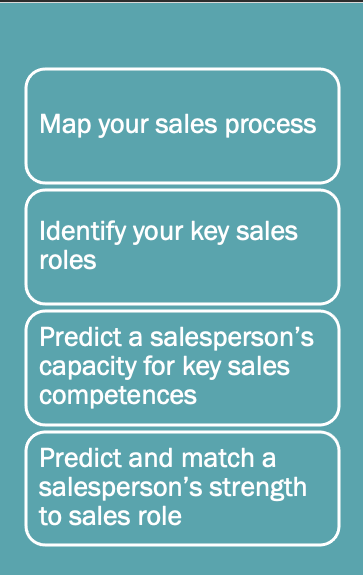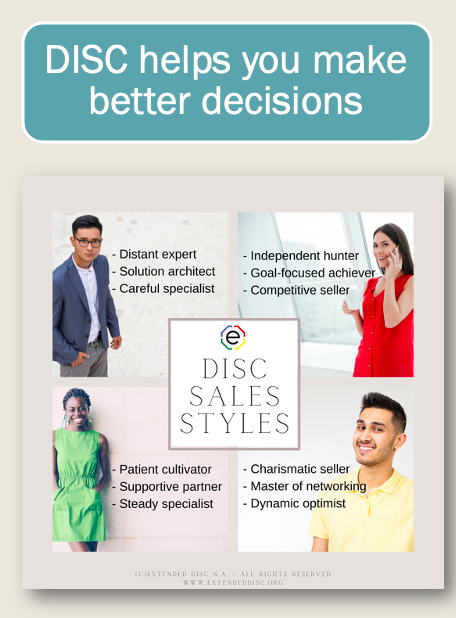Wouldn't our jobs be so much easier if we could identify just one style for a salesperson?
Yes it would, but the short answer is obvious; there isn't an ideal style for a salesperson. Why? Because there is no one sales role. Your company has different products, different goals, different selling cycles, etc. In short, you have different sales processes.
Your sales process
 Clients may often overlook defining their sales process. What is the process you should be following to achieve sales success? Also, do your employees have a clear understanding of your sales process and how they are to be held accountable?
Clients may often overlook defining their sales process. What is the process you should be following to achieve sales success? Also, do your employees have a clear understanding of your sales process and how they are to be held accountable?
One of the first steps, after identifying your sales goals, is to map your sales process. Input is needed from your critical salespeople, sales managers, and outside experts, in order to have a solid process in place. Now, you can identify your key salespeople and better match your talent based on education, strengths, capacity, etc., because you have a clearer understanding of what you are doing from start to finish.
Your company's talent
 Understanding that some sales skills are more natural for some people, rather than others, can create a potential for talent development. Are you looking for someone who is independent or competitive? Are you looking for someone who is people-focused and charismatic or has time and budget management skills? It would be ideal if someone had a little of everything, but skills are something we consistently develop. It's just that we all have naturally different starting points.
Understanding that some sales skills are more natural for some people, rather than others, can create a potential for talent development. Are you looking for someone who is independent or competitive? Are you looking for someone who is people-focused and charismatic or has time and budget management skills? It would be ideal if someone had a little of everything, but skills are something we consistently develop. It's just that we all have naturally different starting points.
The topic today is not focused on hiring talent; rather, it's about the sales talent you have. Of course, you need to review your hiring decisions as an ongoing process to continuously seek out top talent. You are focusing on which of your salespeople are the best fit for your sales roles requirements.
Not every sales style fits every business's sales process. Understanding your unique business needs, including who your clients are and where the bulk of your focus is in the sales process, can ultimately save you time and money. Do you need someone who can close the deal quickly or do you need someone who can establish a relationship and broaden the scope of the sales contract? Will they likely thrive in your corporate culture?
The productivity of your sales talent can make or break your business. You may already have great talent in your company, but the assigning of job roles may be impeding your team's success. That's why it's vital to have the right tools to find the salesperson who is the best match for your business and customer base.
Tools to help you develop your talent
 Some salespeople may not be maximizing their potential; not because they don't have what it takes, but because their roles do not support their behavioral strengths. How can you find ways to develop and continue to motivate your talent?
Some salespeople may not be maximizing their potential; not because they don't have what it takes, but because their roles do not support their behavioral strengths. How can you find ways to develop and continue to motivate your talent?
Individual assessment tools can provide supportive insight into the behavioral style and the sales capacity of your salespeople. The Sales 18 Report can identify your salespeople's hardwired behavior for different areas of sales success. It helps you to see your salesperson's strengths and challenges, and predict their preferred ways of selling. You can use the Sales Capacity Assessment to measure a person's sales potential and better predict success using supportive data.
In addition, you can use the Team Assessment to develop your sales team. It identifies your team’s strengths and challenges, and dynamics. Your team can make better decisions in the assigning of job roles and collaborate more productively. It can help you lay the foundation for constructive changes in your company so that you're finding the best sales talent, with good information.
Can you afford to not have the right sales talent?

